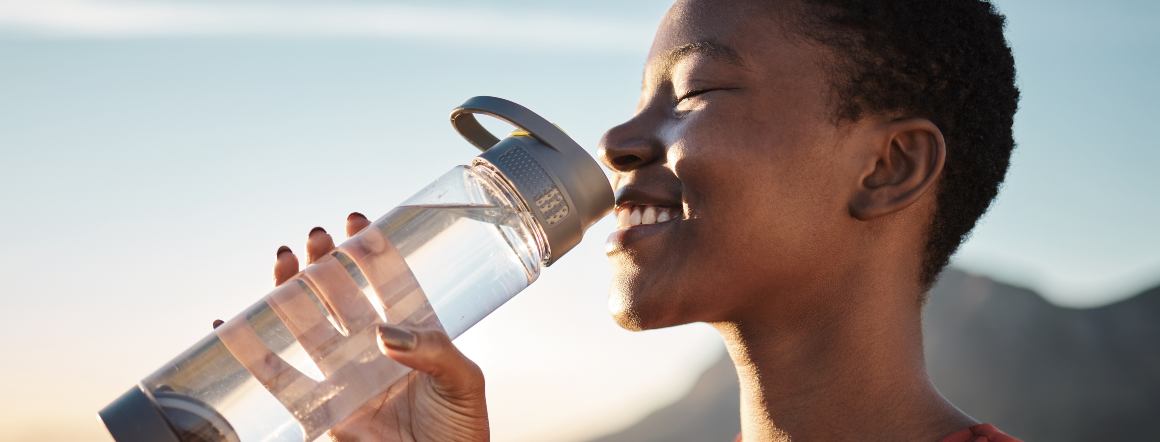
How One Remains Properly Hydrated During Exercise and Why It Is Important
Staying hydrated is a fundamental aspect of maintaining wellness, particularly for those over 50. Proper hydration during exercise plays a crucial role in boosting performance, preventing fatigue, and ensuring overall health. But how can one remain properly hydrated during exercise, and why is it so vital?
Let’s dive into the importance of hydration and effective strategies to keep your body replenished during workouts.
Why Proper Hydration Is Essential During Exercise
Hydration is critical because water plays a key role in regulating body temperature, lubricating joints, and delivering nutrients to cells. During exercise, especially as you age, your body loses fluids through sweat. Failing to replenish these fluids can lead to dehydration, which negatively impacts your:
- Energy Levels: Dehydration often results in fatigue, reducing your ability to complete your workout effectively.
- Muscle Performance: Water supports muscle contraction. A lack of fluids can cause cramps or reduce strength.
- Heart Health: Dehydration makes your heart work harder, which can be risky, especially for those over 50.
- Cognitive Function: Hydration supports focus and decision-making, essential for safe and effective exercise.
How to Stay Properly Hydrated During Exercise
1. Start Hydrated
Before exercising, drink water at least 30 minutes beforehand. Aim for 16-20 ounces of water to ensure your body begins hydrated.
2. Hydrate During Exercise
For every 15–20 minutes of moderate exercise, consume about 4-8 ounces of water. If your workout exceeds an hour, consider incorporating an electrolyte drink to replace lost minerals like sodium and potassium.
3. Listen to Your Body
Pay attention to signs of dehydration, including thirst, dry mouth, fatigue, or dark-colored urine. Adjust your fluid intake accordingly.
4. Plan for Environmental Conditions
Hot or humid weather can increase sweat loss, requiring more frequent hydration. Similarly, during indoor exercises, ensure ventilation to avoid overheating.
Why Hydration Is Particularly Important Over 50
As you age, your body’s ability to regulate temperature and sense thirst decreases. This makes staying hydrated even more critical for older adults during exercise. Proper hydration helps reduce the risk of:
- Heatstroke or overheating during physical activity.
- Kidney Strain due to insufficient fluid levels.
- Joint Pain by maintaining joint lubrication.
By prioritizing hydration, you’ll not only feel better during workouts but also support your long-term health and wellness goals.
Hydration and Your Exercise Routine
Hydrating During Stationary Bike Workouts
Stationary bikes are an excellent choice for low-impact cardiovascular workouts, especially for those over 50. While biking, you may not realize how much fluid your body loses, as sweat tends to evaporate quickly.
To stay hydrated during a bike workout:
- Keep a water bottle within arm’s reach.
- Take small sips every 10-15 minutes.
- Replenish lost electrolytes if the session is intense or lasts longer than an hour.
If you’re considering purchasing an exercise bike to elevate your fitness journey, it’s worth exploring options tailored to your comfort and fitness level. Many models offer features like padded seats, heart rate monitors, and adjustable resistance settings.
Post-Exercise Hydration Tips
Rehydration doesn’t end when the workout does. After exercise:
- Drink Water Immediately: Aim for at least 16-24 ounces of water to replenish lost fluids.
- Consume Water-Rich Foods: Include fruits like watermelon, oranges, or cucumbers in your post-workout meal.
- Monitor Hydration Levels: Check the color of your urine; pale yellow indicates adequate hydration.
Additional Tips for Staying Hydrated
- Carry a Reusable Water Bottle: Make hydration a habit by keeping water accessible throughout the day.
- Set Reminders: Use phone alerts or apps to remind yourself to drink water regularly.
- Limit Dehydrating Beverages: Avoid excessive caffeine or alcohol before exercising, as these can contribute to dehydration.
- Consider Your Diet: Incorporate foods high in water content, such as leafy greens, tomatoes, and citrus fruits.
Staying properly hydrated during exercise is essential, particularly for individuals over 50. By understanding how to maintain hydration and why it matters, you can enhance your performance, protect your health, and make the most of your fitness journey. Whether you’re working out on an exercise bike or enjoying a walk outdoors, always prioritize hydration to feel and perform your best.
Remember, small steps like drinking enough water and monitoring your hydration levels can have a significant impact on your overall well-being. Stay hydrated, stay active, and keep thriving!

Leave a comment